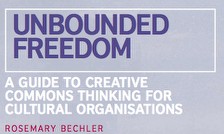
Amazon's new video-on-demand store may sound like a good idea, but once you take a look at the "agreement" you enter into by giving them your money, that changes. The Amazon terms-of-service are among the worst I've ever seen, a document through which you surrender your rights to privacy, integrity of your personal data, and control over your computer, in exchange for a chance to pay near-retail cost to watch
Police Academy n-1. As Ben Franklin might have said:
They that can give up general purpose computers for the sake of a little eye candy deserve neither computers nor eye candy.
I buy a lot of stuff from Amazon. A lot. I won't ever be buying one of these movies. Amazon has a great and well-deserved reputation for amazing customer service. The rare occasions where I've gotten a lemon or ordered the wrong product from Amazon, I've been treated like royalty, with Amazon making every possible accommodation to help me out. Their Look Inside feature and the used goods marketplaces are a tremendous boon to me.
The difference between Amazon and Amazon Unbox is like night and day. When you sign onto Unbox, you sign away all the amazing customer rights that Amazon itself is so careful to protect. Amazon Unbox takes away your privacy and every conceivable consumer right you have, and then tells you that the goods you buy from them don't belong to you, and they can take them away from you at any time, or change the deal you get from them without any appeal by you.
Amazon Unbox's user agreement isn't just galling for its evilness -- it's also commercially suicidal. No sane person will agree to this. Amazon Unbox user agreement is only a couple femtometers more dignified than being traded to another inmate for a couple packs of cigarettes.
Section 3: "The Software may operate on your Authorized Device continuously for a variety of reasons, including the management of your Digital Content."
What this means is that there's no way to switch off the Amazon Unbox software. Once you install it, it does what other programs that remote-control your PC against you do: stays resident and refuses to budge. It might phone home, it might check and re-check your licenses. Who knows? This is a cop that you're installing on your machine, and you're the perp. Its job is to watch everything you do and keep you in line.
Section 3a: "The Software automatically checks for upgrades, but the Software will not automatically upgrade without your consent, except as provided herein. If you do not consent to an upgrade that we make subject to your consent, the Digital Content may no longer be viewed on your Authorized Device. You must keep the Software on your Authorized Device current in order to continue to use the Service. We may automatically upgrade the Software when we believe such upgrade is appropriate to comply with law, enforce this Agreement, or protect the rights, safety or property of Amazon, our content providers, users, or others."
The software you're agreeing to install today isn't the software you're going to have to run. Tomorrow, the day after, next week, and ten years from now, we plan to be forcing you into ever-tighter nooses. You don't
have to install the updates, but if you don't, kiss the movies we sold you goodbye. We're going to update the software any time Hollywood tells us to, in order to protect their "safety." You might be used to disabling the DRM on your DVD player (Amazon even sells region-free players that come pre-hacked!), but forget about doing the same thing for your Amazon Unbox property: if someone figures out how to add a feature to your Unbox player, we will promptly confiscate that feature.
I once attended a DRM negotiation where an MPAA vice-president said, "Watching a show that's being received in one room while you're sitting in another room has value, and if it has value, we should be able to charge money for it." Siva Vaidhyanathan calls this the "if value, then right" theory -- if something has value, someone must have a right to sell it. So while you might be accustomed to extracting unexpected value from your old media -- ripping a CD to play it on your iPod, copying a cartoon and sticking it on your fridge, taking your books with you when you move overseas -- forget about it from now on.
Every conceivable source of value for DRM digital movies is now potentially for sale. I've heard proposals for "discounted" movies that you can't fast-forward ("discounted" in the sense that products you buy with a store loyalty card are "discounted" -- they raise the price unless you use the card). Prepare for the future where every button on your remote has a price-tag on it.
Section 3b: Amazon respects your privacy, and the Software will not access computer files or other information on your computer that are not used by or otherwise related to the Service. Among other things, the Software will provide Amazon with information related to the Digital Content on your Authorized Device and your use of it and information regarding your Authorized Device and its interaction with the Service. This information will enable Amazon to manage rights associated with the Digital Content, allow Amazon to help you use the Service more effectively and otherwise help Amazon to enhance and improve the Service. For example, the Software may provide Amazon with information about the Digital Content from the Service on your Authorized Device, whether it has been deleted and whether it has been viewed. The Software may also provide Amazon with information about your Authorized Device's operating system, software, amount of available disk space and Internet connectivity, such as whether your computer or other device is available online. This information will, among other things, help us deliver Digital Content to you more efficiently and effectively. The Software may also provide Amazon with information about the transfer of Digital Content to portable devices to help us ensure compliance with our rules concerning portable devices.
Amazon says it respects your privacy, but this clause tells the real story. Click "I agree" and you've just signed away permission for Amazon to wiretap all of your viewing habits, and to search your entire hard drive continuously and report back on all the software you've installed. The entertainment industry can produce a blacklist of legal software that it just doesn't care for -- say, software that lets you take screenshots, or screen-movies -- and refuse to allow your movies to run if you've installed it. In other words, this clause lets Hollywood specify how you must configure your PC.
Section 3c. Removal of Software. If you uninstall or otherwise remove the Software, your ability to view all Digital Content you have downloaded to the Authorized Device will immediately and automatically terminate and we reserve the right to delete all Digital Content from that Authorized Device without notice to you.
Surprise! If you delete our software, we delete your movies! Imagine if selling your old DVD player gave Jack Valenti permission to come over to your house and take away all your DVDs, too.
Section 4: The Service allows you to (i) pay a fee to view Digital Content for a limited specified period of time ("Rental Digital Content"), and (ii) pay a fee to view Digital Content a repeated number of times ("Purchased Digital Content"). As used herein, (i) "Residence" shall mean a private, residential dwelling unit or a private individual office unit, but excluding hotel rooms, motel rooms, hospital patient rooms, restaurants, bars, prisons, barracks, drilling rigs and all other structures, institutions or places of transient or work-related residence as well as places, areas, structures, rooms or offices which are common areas or open to the public or to occupiers of separate Residences or for which an admission fee is charged; (ii) "Permitted Non-Residential Use" shall mean the private viewing by one or more persons on a video monitor (desktop, television monitor, laptop, hand-held device or otherwise) in a Non-Residential Venue; provided, however, that any such viewing for which an access fee or other admission charge is imposed (other than any fee related only to access such Non-Residential Venue for other general purposes) or any such viewing that is on a monitor provided by such Non-Residential Venue (or by a third party under any agreement or arrangement with such Non-Residential Venue) for display of programming in a common area shall not constitute a "Permitted Non-Residential Use"; and (iii) "Non-Residential Venue" shall mean any place, area, structure or room other than a Residence.
Remember when you used to watch DVDs in the break-room at work, or in the common room at school? Remember when you used to bring movies for your kid to watch in hospital after she had her tonsils out? Forget about it. These movies can only be watched where and when we say. This might be "Purchased digital content," but don't ever mistake it for
your property. Like feudal times: lords get to own property, and everything we serfs have belongs to the lord.
Section 4a. Rental Digital Content. Upon your payment of the rental fee, Amazon grants you a non-exclusive, non-transferable, limited right and license to view, use and privately display in your Residence or for Permitted Non-Residential Use, the Rental Digital Content purchased by you, by way of one (1) non-portable Authorized Device (e.g., a laptop or desktop computer) connected to the Service over the Internet as specified on the detail pages of the Rental Digital Content or other help or informational pages of the Service at the time of your payment. Unless otherwise designated on a detail page for Rental Digital Content, the license for Rental Digital Content is limited in its term and duration to thirty (30) days from your payment of the rental fee or twenty-four (24) hours from the time you start viewing the Rental Digital Content, whichever is sooner. The Software may automatically delete Rental Digital Content that is beyond its limited license term from your Authorized Device, and you consent to such automatic deletion. You may not copy or move Rental Digital Content from their originally stored location(s) on your Authorized Device. There can only be 1 (one) account for the Service on an Authorized Device.
So this is just like renting a movie from Blockbuster, except that while you can give your Blockbuster movies to your boyfriend to watch after you're done with them, these movies are only for you. Oh, and they cost more. Oh, and you have to pay for the bandwidth to transfer them to your home. Oh, and you have to wait for them to download. Oh, and you have to let them invade your privacy.
Section 4b. Purchased Digital Content. Upon your payment of the license fee, Amazon grants you a non-exclusive, non-transferable, limited right and license to retain a permanent copy of Purchased Digital Content and to view, use, and privately display the Purchased Digital Content in your Residence or for Permitted Non-Residential Use as specified on the detail pages of the Purchased Digital Content or other help or informational pages of the Service at the time of your payment. You may exercise these rights on up to 2 (two) non-portable Authorized Devices (e.g. laptop or desktop computers) and two (2) portable Authorized Devices as specifically designated by Amazon from time to time. There can only be 1 (one) account for the Service on an Authorized Device. You may make a back-up copy of Purchased Digital Content on removable media (e.g. recordable DVD) or on an external hard drive in the same format as the original downloaded file to play on your permitted Authorized Devices. Any back-up copy of the Purchased Digital Content on a DVD will not be playable on a traditional DVD player, but only on a permitted Authorized Device.
You can purchase our "digital content," but that doesn't mean you own it. You can't sell it, give it to your kid's school, or donate it to a homeless shelter. Also, you can only play it on two portable players, and only the models we approve. And if you buy an approved portable player, we can later nullify your investment by canceling that device's permission to play your movies.
Section 4c. Downloading and Risk of Loss. It is your responsibility to download Digital Content promptly after purchase. If you are unable to complete a download after having reviewed our online help resources, please contact Amazon customer service. You bear all risk of loss for completing the download of Digital Content after purchase, once we have made such content available to you (in Your Media Library or otherwise), and for any loss of Digital Content you have downloaded, including any loss due to a file corruption or a computer or hard drive crash. Purchased Digital Content will generally continue to be available in your Media Library for download to a second of your Authorized Devices (or re-download to the first Authorized Device you designate for the content), but may become unavailable due to potential content provider licensing restrictions and for other reasons and Amazon will not be liable to you if content becomes unavailable for further download.
Movies from Amazon don't come with the same rights as DVDs from Amazon -- DVDs can be sold, given away, and watched on any player. You don't have to give up your privacy or control over your property to watch a DVD.
If Amazon sells you a DVD but it never arrives in the mail, Amazon gives you a full refund. But if you buy an Unbox movie and your download fails, Amazon has no obligation to get you that flick. Naturally, replacing your Unbox movies costs nothing, while shipping you a replacement DVD costs quite a lot.
Section 5: From time to time, Amazon will automatically deliver promotional video content (e.g., movie trailers, celebrity interviews, reviews, etc.) to your Authorized Device. Amazon may automatically delete such promotional video content from your Authorized Device without notice to you.
We will put commercials on your computer without your permission. But you can't keep the good ones.
Section 6: Except for the rights explicitly granted to you in this Agreement, all right, title and interest in the Service and Digital Content are reserved and retained by Amazon and its licensors, and Amazon and its licensors do not transfer any right, title or interest in the Digital Content to you. You do not acquire any ownership rights in the Digital Content as a result of downloading Digital Content.
We call it "purchased content," but you don't own it.
Section 7: The Services are available only to customers located in the United States. If you are outside of the United States, you may not use the Services and you may not transfer Digital Content outside the United States. As used herein, "United States" refers to the 48 contiguous United States, the District of Columbia, Alaska and Hawaii.
If you move, or if you travel, we'll take your movies away.
Section 8: 8. All rentals and sales of Digital Content are final when you click the "Buy Now" button.
It's a "Sale" but you haven't bought it -- you've only licensed it.
Section 9a: a. If you violate any of the terms or conditions of this Agreement or otherwise abuse the Service, your license to Rental Digital Content and Purchased Digital Content will immediately terminate and Amazon may, in its discretion, immediately revoke your access to the Service without notice to you and without refund of any fees. In such event, you must delete all copies of Digital Content that you have downloaded, and Amazon shall have the right to automatically delete all Digital Content on your Authorized Device without notice to you.
If we think you've done something naughty, we can take away all the movies you've bought, without appeal. Better not do anything we think is naughty. What do we consider naughty? We're not telling.
Section c. If Amazon changes any part of the Service or modifies license terms applicable to Rental Digital Content or Purchased Digital Content, which it may do in its sole discretion, you acknowledge that you may not be able to access, view, or use Digital Content in the same manner as prior to such changes, and you agree that Amazon shall have no liability to you in such case.
We can change the terms of this deal at any time. Today you can play it on two portable players -- maybe it'll be zero tomorrow. Today you can only watch these movies in the US, tomorrow, maybe only west of the Mississippi.
Section d: Amazon reserves the right to modify, suspend, or discontinue the service at any time without notice to you, and Amazon will not be liable to you should it exercise such rights.
Even if you're not doing something naughty, we can take away the movies we "sold" you.
Link(
Thanks, Xeni!)
 The first generation of Creative Commons is not the Utopian world of Romantic authentic exchange that Carlyle thought money had destroyed. But it draws on the same insight. It turns out that what makes for success is not whether money is exchanged or whether laws are challenged. What makes cultural commons thinking the basis of a gathering social movement worldwide, is the perception that it is the mutually enabling relationship that matters most. These licences make it easier to share. Those whose innovating energy have begun to transform the centre from the edge – who we might think of as the new authors – are people who have understood this. And they are also its beneficiaries.
The first generation of Creative Commons is not the Utopian world of Romantic authentic exchange that Carlyle thought money had destroyed. But it draws on the same insight. It turns out that what makes for success is not whether money is exchanged or whether laws are challenged. What makes cultural commons thinking the basis of a gathering social movement worldwide, is the perception that it is the mutually enabling relationship that matters most. These licences make it easier to share. Those whose innovating energy have begun to transform the centre from the edge – who we might think of as the new authors – are people who have understood this. And they are also its beneficiaries. Libraries should be allowed to make copies of sound and film recordings to ensure they can be preserved for posterity in the future.
Libraries should be allowed to make copies of sound and film recordings to ensure they can be preserved for posterity in the future. 


 Amazon's new video-on-demand store may sound like a good idea, but once you take a look at the "agreement" you enter into by giving them your money, that changes. The Amazon terms-of-service are among the worst I've ever seen, a document through which you surrender your rights to privacy, integrity of your personal data, and control over your computer, in exchange for a chance to pay near-retail cost to watch Police Academy n-1. As Ben Franklin might have said:
Amazon's new video-on-demand store may sound like a good idea, but once you take a look at the "agreement" you enter into by giving them your money, that changes. The Amazon terms-of-service are among the worst I've ever seen, a document through which you surrender your rights to privacy, integrity of your personal data, and control over your computer, in exchange for a chance to pay near-retail cost to watch Police Academy n-1. As Ben Franklin might have said: 

